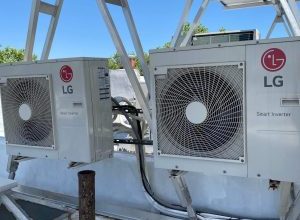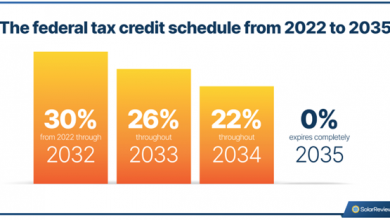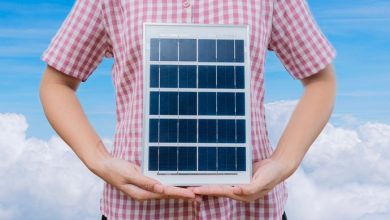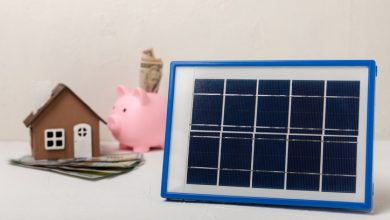The NYC Co-Op Owner’s Guide to Solar
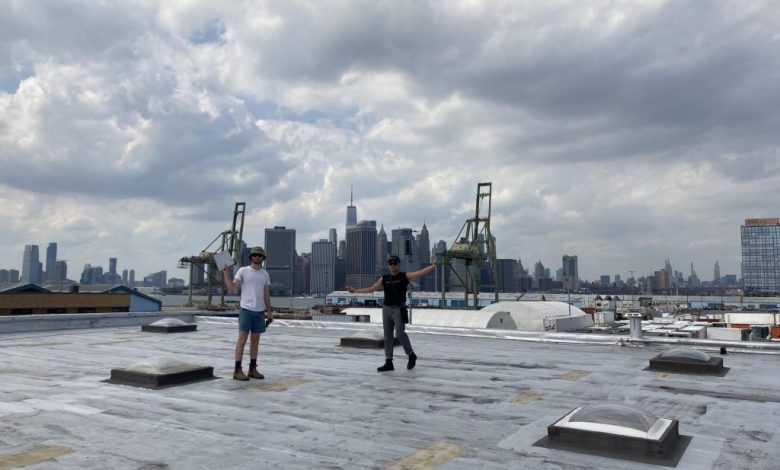
In 2015, Brooklyn SolarWorks landed in Gowanus with a mission to bring innovative and affordable solar to the rooftops of NYC. We’ve overcome barriers to develop industry-leading approaches to permitting, design, and installation that are specifically adapted to New York City.
Now, solar power is transforming how New York City’s co-ops manage energy costs and sustainability goals. With rising utility rates and strict carbon emission laws like Local Law 97, co-op owners are increasingly exploring solar as a way to reduce expenses, boost property values, and ensure compliance with local regulations.
This guide provides everything you need to know about solar energy for NYC co-ops, from roof compatibility and installation options to navigating NYC building codes and financial incentives.
Background of Solar in NYC
For many years, solar contractors in the area embraced installation methods and system designs that were not developed for the typical New York City building. Unlike the NYC suburbs, buildings here in the city have many unique features, such as:
- Surrounding buildings
- Skylights
- Hatches
- HVAC equipment
- Required FDNY fire paths
Despite NYC’s dense urban landscape, innovative solar solutions such as canopies, tilt racks, and ballasted systems have made it possible to maximize solar potential on flat and limited rooftop spaces. As more co-ops recognize the long-term benefits of solar, the closer the city grows towards its climate goals of reaching net-zero carbon emissions by 2050.
How to Know if Your Roof is Compatible with Solar
Not all roofs are ideal for solar installations. For co-op owners, determining roof compatibility is a crucial first step. Key factors include:
- Workable Roof Size and Space: Larger roofs provide economies of scale and better ROI.
- Structural Integrity: The roof must support the additional weight of solar panels.
- Roof Condition: Older or damaged roofs may need repairs or replacement before installation.
- Shading: South-facing roofs with minimal shading yield the best results.


In order to know for sure if your roof is fit for solar, it is important to get the roof surveyed by a certified solar professional.
Want to know if your building is compatible with solar? Schedule a free consultation today!
Solar Design Options
Installing solar in New York City– especially those with obstructions like hatches, skylights, and required FDNY fire paths – requires a bit more creativity than other solar designs. Luckily we have created multiple design options for co-op solar installations, depending on their roof structure and needs:
Canopy


The Brooklyn Solar Canopy is a revolutionary design tailored for NYC’s flat roofs. This award-winning innovative structure elevates solar panels above roof obstructions and fire safety paths while creating usable rooftop spaces for amenities like green roofs or decks. Its functional and aesthetic appeal has made it a favorite for co-ops, offering a way to maximize energy generation without sacrificing usability. It’s so popular that we now distribute our solar canopy to other installers all over the country through a separate company, Brooklyn Solar Canopy Co.
Tilt Rack


Tilt rack systems are ideal for flat roofs where a canopy may not fit the building’s aesthetic or functional goals. These systems elevate panels at an optimal angle to capture sunlight while maintaining proximity to the roof. By allowing flexibility in panel placement, tilt racks work around obstructions like vents or skylights, ensuring maximum energy production.
Ballasted


For buildings seeking a non-invasive approach, ballasted systems offer an excellent solution. These designs use weighted mounts to secure the panels without penetrating the roof, preserving its integrity while ensuring stability.
Traditional Solar Panel Installation


Traditional solar designs for pitched and sloped roofs integrate solar panels seamlessly with the roof. Panels are installed flush with the roof surface, providing a streamlined appearance. This option works best for co-ops with traditionally sloped roofs and ample sunlight exposure.
Financial Benefits of Solar for NYC Co-ops
Solar energy provides co-ops with substantial long-term financial advantages that go beyond just energy savings. By investing in solar, co-op owners can take control of their energy costs, protect against rate hikes, and increase property value while benefiting from low maintenance costs and incentives.
How Solar Protects Against Utility Rate Hikes in NYC
Utility rates in NYC have consistently risen over the years, with no signs of slowing down. By switching to solar, co-ops can shield themselves from unpredictable Con Edison rate hikes. Solar systems generate clean, renewable energy on-site, allowing buildings to offset their reliance on grid power. This not only stabilizes energy costs but also locks in predictable savings for the next 25–30 years, ensuring financial security for co-op owners.
Low Maintenance Costs of Solar Systems
One of the most appealing aspects of solar energy is its low maintenance requirements. Modern solar systems are designed for durability and longevity, requiring minimal upkeep throughout their lifespan.
To ensure your solar system is at peak performance, Brooklyn SolarWorks provides a 24/7 monitoring system as part of our warranty package. Our team actively monitors our entire fleet of solar systems on a regular basis, and are alerted in case of any irregularities in system functionality. System owners also have access to monitor their panels as well.
Additionally, Brooklyn SolarWorks includes an industry leading 30-year total system warranty AND a power production guarantee, minimizing out-of-pocket expenses for co-ops. This low-maintenance advantage ensures co-op owners enjoy consistent energy savings without added hassle.
Boosting Property Value with Solar Energy
According to an April 2019 study by Zillow.com solar homes sell on average at 4.1% higher than comparable homes without solar. The study also found that the solar boost was higher in the NYC metro area than the national average, topping out at 5.4%. That’s an extra $23,989 in value for solar property owners in the five boroughs. The study corroborated similar findings of an early report funded by the U.S. Department of Energy.
Co-op buildings with solar energy systems are more marketable and competitive in NYC’s real estate landscape, offering long-term benefits that far outweigh the initial investment. For co-op owners, solar provides a unique opportunity to enhance their property’s financial and environmental appeal.
Want to learn more about the benefits of solar? Schedule a free consultation today and start saving for decades to come!
Solar Panel Installation Cost
Determining the cost of a solar panel installation for NYC co-ops depends on multiple factors, making it more complex than in other regions. Factors such as roof type, system size, incentives, and energy consumption patterns all play a role in shaping the final price. Unlike other areas, where pricing may be more standardized, NYC’s unique urban environment and stringent regulations require specialized solar design solutions.


NYC’s solar market stands out as one of the most incentivized in the country. Programs like NYSERDA rebates, federal tax credits, and a property tax abatement collectively cover 75% or more of a system’s cost. On top of these incentives, some NYC buildings (including HDFC co-ops) qualify for additional rebates. These robust financial incentives make solar a feasible investment for many co-ops, allowing them to transition to renewable energy without bearing a significant upfront financial burden.
Although the initial cost may seem high, it’s crucial to view solar as a long-term investment. Solar installations not only reduce utility bills but also increase property value over time. For co-ops in NYC, the payback period typically ranges from 4 to 6 years, and the cumulative energy savings can exceed $150,000 over the system’s lifespan. These benefits, combined with the ability to avoid penalties under Local Law 97, make solar an increasingly popular choice among NYC co-ops.
For a personalized estimate and to explore incentives specific to your co-op, schedule a free consultation today.
Navigating NYC Building Codes and Solar Installation Regulations
New York City’s building codes and regulations can feel overwhelming, but understanding these requirements is essential for a smooth and successful solar installation process. From carbon emission laws to permitting procedures, NYC co-op owners must address several key factors before proceeding with solar.
Complying with Local Law 97
Local Law 97 is a critical regulation that sets strict carbon emission limits for NYC buildings larger than 25,000 square feet. Under this law, co-ops that fail to reduce emissions below the defined limits may face significant financial penalties.
Solar energy provides a practical solution by reducing reliance on fossil fuels and lowering emissions. By installing solar panels, co-ops can offset their energy usage, achieve compliance with Local Law 97, and avoid steep fines while improving their building’s overall sustainability.
How Roof Warranties and Building Codes Affect Solar Installations
Roof warranties are a common concern for co-ops considering solar. Solar panel installations must be designed and implemented carefully to ensure the roof warranty remains intact. That’s why we offer non-invasive solutions, such as ballasted systems, that avoid roof penetrations while maintaining structural stability.
Additionally, NYC building codes require solar installations to meet strict safety, fire, and structural standards. Working with experienced local installers ensures compliance with these codes and minimizes the risk of costly delays or issues all while getting the best solar system possible.
Addressing Permitting Challenges
The permitting process can be complex and time-consuming. Luckily, we’ve created a turn-key business model, meaning it’s on us, the installer, to manage all permits and permissions on behalf of the customer with the city, Con Edison, and all other entities. Because of the time it takes to permit a project, the installation process takes about 4-6 months to complete from contract signing. During that time, the customer is required to do almost nothing until the day of the installation.


How to Bring Solar Power to Your Co-op Board
Installing solar on your co-op building will require approval from all of the decision-makers in your building. Bringing solar power to your co-op board will involve careful preparation and clear communication about how solar will benefit residents.
Educate Your Co-op Board on Solar Benefits
Start by educating the board about the benefits of solar energy, both financial and environmental. Emphasize how solar can reduce operating costs, protect against rising utility rates, and help the building comply with Local Law 97 to avoid penalties.
Present Financial Data to Stakeholders
To build support, present detailed ROI and payback period data that demonstrate the financial feasibility of solar installations. Highlight that the average payback period in NYC is just 4–6 years (compared to the national average of 7-10 years) and that co-ops can save $5,000–$10,000 annually on energy costs.
Understand Incentives that Make Solar More Accessible for Co-ops
Financing is often a key concern for co-op boards. Luckily, NY solar incentives can help cover around 75% or more of the total system cost come tax season.
By presenting a comprehensive case and addressing potential concerns, you can successfully bring solar power to your co-op board and move toward a more sustainable and cost-effective energy solution.
If you need help gathering this data, schedule a free consultation with us today. We are always excited and ready to present to a Co-op board! Start the conversation.
Solar Story: David, Park Slope
Meet David, Treasurer of his 8-unit co-op in Park Slope, Brooklyn. He shares how going solar with Brooklyn SolarWorks not only helps the environment but also provides significant savings to residents of his building. With the help of state incentives and expert analysis, David’s co-op saved 81% of the initial installation costs, and the financial benefits have exceeded expectations. Watch his full story to learn how solar power is transforming his building and helping them save on energy costs. 💡
How to Choose the Right Solar Installer
Selecting the right solar installer is a critical step in ensuring a successful transition to renewable energy for your co-op. Unlike typical home improvement projects, solar installations in NYC require expertise not only in solar technology but also in navigating the city’s complex building codes, permitting processes, and unique structural challenges.
A reliable solar installer should offer more than just high-quality products; they should act as a partner throughout the entire process. From the initial consultation and feasibility studies to securing permits and completing the installation, your chosen provider must demonstrate a thorough understanding of NYC’s specific requirements. Look for companies with a proven track record in urban solar installations and an in-depth knowledge of local laws, such as Local Law 97.
We’ve built our business from top to bottom to do all of these things for each and every customer of ours – contact us today!
Solar Warranty and Maintenance
When you invest in a solar system, you want assurance that it will perform reliably for years to come. That’s why reputable solar installers offer robust warranties and straightforward maintenance processes. At Brooklyn SolarWorks, all our systems come with a comprehensive 30-year warranty, covering panels, inverters, and overall system performance. We even include a production guarantee, ensuring that if your system underperforms, you’ll receive compensation for the lost savings.


Surprisingly, solar panels require minimal maintenance thanks to their durable, low-maintenance design. With no moving parts, the risk of mechanical failure is virtually eliminated. Panels are typically angled to allow rainwater to naturally wash away dirt and debris, so you don’t need to worry about regular cleaning. If you choose to clean them, avoid abrasive tools or detergents that could scratch the glass.
Snow removal is also unnecessary, as most systems are designed to handle winter weather conditions. Snow naturally melts or slides off, and the minimal power loss during snowy periods is not worth the risk of climbing onto an icy rooftop.
There’s not much you’ll need to do for solar panel maintenance. Solar systems are equipped with remote monitoring, allowing you and your installer to track performance effortlessly. This hands-off maintenance approach ensures that you can enjoy decades of clean, cost-effective energy without the hassle.
FAQs About Solar Energy for NYC Co-op Owners
Co-op owners often have many questions about the logistics, costs, and benefits of solar energy. Here are answers to the most common inquiries to help guide your decision-making process.
What does solar installation cost for co-ops?
The cost of installing solar panels for co-ops varies based on factors like system size, roof type, and energy consumption. However, NYC co-ops benefit from a variety of incentives, including NYSERDA rebates, federal tax credits, and property tax abatements, which can significantly reduce upfront costs by 75% or more. On average, co-ops in New York City can expect a payback period of 4–6 years, making solar a highly cost-effective investment.
What incentives are available to NYC co-op owners?
NYC co-ops have access to generous incentives that make solar installations more affordable. The NYSERDA rebate is one of the most significant, with commercial buildings receiving rebates up to four times higher than residential properties. Additionally, co-ops can take advantage of the 30% federal tax credit and NYC’s property tax abatement, further lowering the overall investment.
How does solar installation impact the roof?
Co-op owners often worry about how solar panels will affect their roofs. Fortunately, modern installation techniques, such as ballasted systems, are designed to preserve roof integrity by avoiding penetrations. Most solar providers also offer roof warranties to ensure the roof remains protected throughout the system’s lifespan. In fact, solar panels can extend a roof’s lifespan by shielding it from weather and UV exposure.
Get Started with Solar for Your NYC Co-op
Taking the leap toward solar energy for your NYC co-op is not just an investment in cost savings; it’s a commitment to sustainability, resilience, and forward-thinking property management. From compliance with Local Law 97 to long-term financial stability and increased property value, solar power offers so many benefits that make it a smart, impactful choice for co-op owners across the city.
If you’re looking to install solar on your New York City co-op, trust an expert. Brooklyn SolarWorks has been designing and building innovative solar systems for NYC since 2015, with over 2,000 complete projects.
Ready to get started? Schedule your free consultation.
